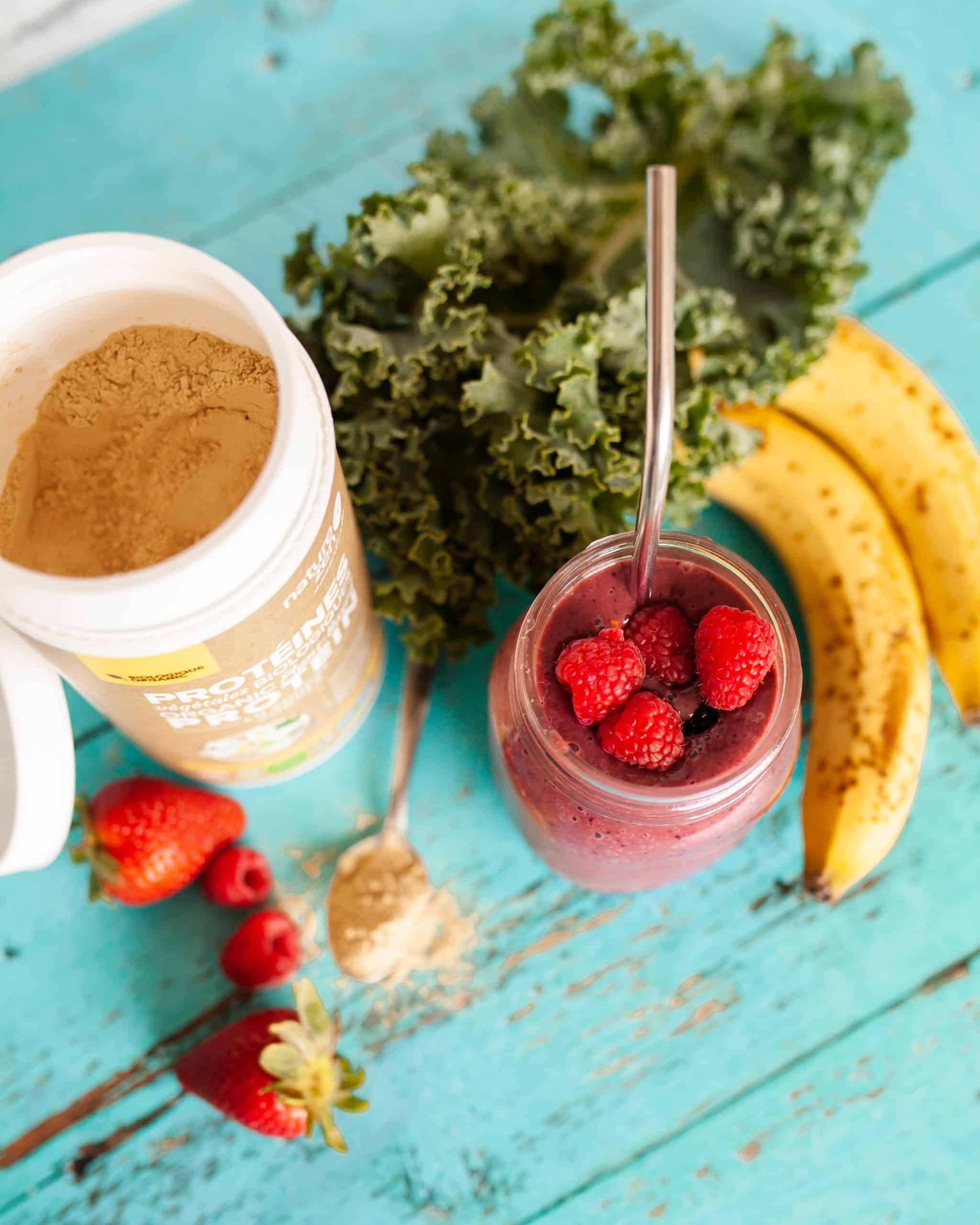The ultimate guide to plant-based proteins

Protein is an essential nutrient for the body, and it’s not only found in animal-based food sources. In this article, you’ll read about plant-based proteins and their significant role in nutrition. We will explore the best sources of plant protein, their health benefits, and how to incorporate them into your diet.
Understanding Proteins and Their Importance
Before we dive into the world of plant-based proteins, it’s critical to understand what proteins actually are and why they are so important to our health. Proteins are large, complex molecules that play many vital roles in the body. They are responsible for building, maintaining, and repairing tissues, organs, and cells.
A lire en complément : What are the best tips for cooking with tofu?
Proteins are made up of amino acids, which are often referred to as the building blocks of life. There are 20 amino acids in total, nine of which are ‘essential,’ meaning our body cannot produce them and we must obtain them from the food we eat.
Animal-based proteins are referred to as ‘complete’ proteins because they contain all nine essential amino acids. However, most plant-based proteins are ‘incomplete’ as they lack one or more essential amino acids. But that doesn’t mean you can’t get all your essential amino acids from plants. It simply means you need to eat a variety of plant-based protein sources to get a mix of all the essential amino acids.
Avez-vous vu cela : What’s the best way to cook with fresh herbs?
The Health Benefits of Plant-Based Proteins
Plant-based proteins are not only excellent sources of protein but they also offer numerous health benefits. This is because plant-based proteins are usually low in saturated fat and high in fiber, vitamins, and minerals.
A diet high in plant-based proteins has been linked to lower risks of heart disease, high blood pressure, type 2 diabetes, and certain types of cancer. Furthermore, eating plant-based proteins can also aid in weight management as they tend to be lower in calories and more filling due to their high fiber content.
Incorporating plant-based proteins into your diet can contribute to overall healthy eating habits and improved health outcomes.
Top Sources of Plant-Based Proteins
Now that you’ve read about the health benefits of plant-based proteins, let’s look at the best sources.
- Legumes: Legumes such as lentils, chickpeas, and beans are protein powerhouses. A cup of lentils, for instance, provides about 18 grams of protein. Moreover, legumes are excellent sources of fiber, which can aid in digestion and keep you feeling full.
- Quinoa: Quinoa is one of the few plant-based foods that is a complete protein, containing all nine essential amino acids. One cup of cooked quinoa contains around 8 grams of protein.
- Nuts and Seeds: Almonds, peanuts, chia seeds, and flax seeds are high in protein and healthy fats. For instance, one ounce of almonds contains around 6 grams of protein.
- Soy Products: Tofu, tempeh, and edamame are all derived from soybeans and are excellent sources of plant-based protein. A half-cup of tofu contains about 10 grams of protein.
Incorporating Plant-Based Proteins into Your Diet
Incorporating plant-based proteins into your diet doesn’t have to be complicated. Here are a few simple ways to do it:
- Replace meat with legumes, tofu, or tempeh in your favorite recipes.
- Include a handful of nuts or seeds in your salads or yogurt for added protein.
- Use plant-based protein powders in your smoothies.
- Opt for whole grain bread or pasta, which contain more protein than their refined counterparts.
- Include a variety of plant-based proteins in your diet to ensure you’re getting all the essential amino acids.
Takeaways
As you’ve read in this article, plant-based proteins are an excellent source of dietary protein. Not only are they packed with nutrients, but they also provide numerous health benefits, making them a great addition to any diet—whether you’re a vegetarian, vegan, or just trying to eat healthier. With a variety of sources available, from legumes to nuts and seeds, there’s a plant-based protein out there for everyone.
Debunking Myths about Plant-Based Proteins
One major misconception about plant-based proteins is that they are inferior to animal proteins. This belief is based on the fact that most plant proteins are ‘incomplete,’ lacking one or more of the nine essential amino acids. It’s important to remember, however, that by eating a variety of plant-based foods, you can easily obtain all the essential amino acids your body needs.
Another myth is that plant-based diets cannot provide enough protein for active individuals or athletes. Several studies have debunked this, showing that a well-planned plant-based diet can meet the increased protein needs of athletes and even support muscle growth and recovery. Incorporating high-protein plant foods like legumes, quinoa, nuts, seeds, and soy products can help achieve these increased protein requirements.
Lastly, some believe that plant-based protein sources are not as palatable or versatile as animal protein sources. However, many plant-based proteins like tofu and tempeh absorb flavors well and can be used in a variety of dishes, from stir-fries to desserts. Additionally, foods like lentils, chickpeas, and quinoa can be used in salads, soups, and even baked goods.
Complete Proteins in the Plant World
While it is true that most plant-based proteins are incomplete, there are a few plant sources that contain all nine essential amino acids, making them complete proteins. These include:
- Quinoa: As previously mentioned, this grain-like seed is a complete protein and can be used in a variety of dishes from salads to stews.
- Buckwheat: This is not a type of wheat, but a relative of rhubarb. It’s a complete protein and can be found in forms like buckwheat groats or buckwheat flour.
- Hemp seeds: These are a great source of complete protein and can be easily sprinkled on salads or added to smoothies.
- Soy: All forms of soy, including tofu and tempeh, are complete proteins.
- Chia seeds: These tiny seeds are complete proteins and are also packed with omega-3 fatty acids.
By incorporating these complete plant-based proteins into your diet, you can ensure you’re getting all the essential amino acids in adequate amounts.
Conclusion
The shift towards a plant-based diet has been gaining traction due to its numerous health benefits. As we have explored in this ultimate guide, plant-based proteins play a key role in this diet and offer a plethora of nutritional benefits.
Whether you’re considering going vegan or vegetarian, or simply aiming to reduce your animal protein intake, turning to plant-based proteins is a commendable decision for your health and the environment. Remember, the key to a balanced plant-based diet is variety. This will ensure you’re not only getting enough protein, but also all the essential amino acids and other vital nutrients.
So go ahead, explore the world of plant-based proteins, and experience the health benefits they have to offer. With a wide variety to choose from, there’s a plant protein for everyone’s taste.
